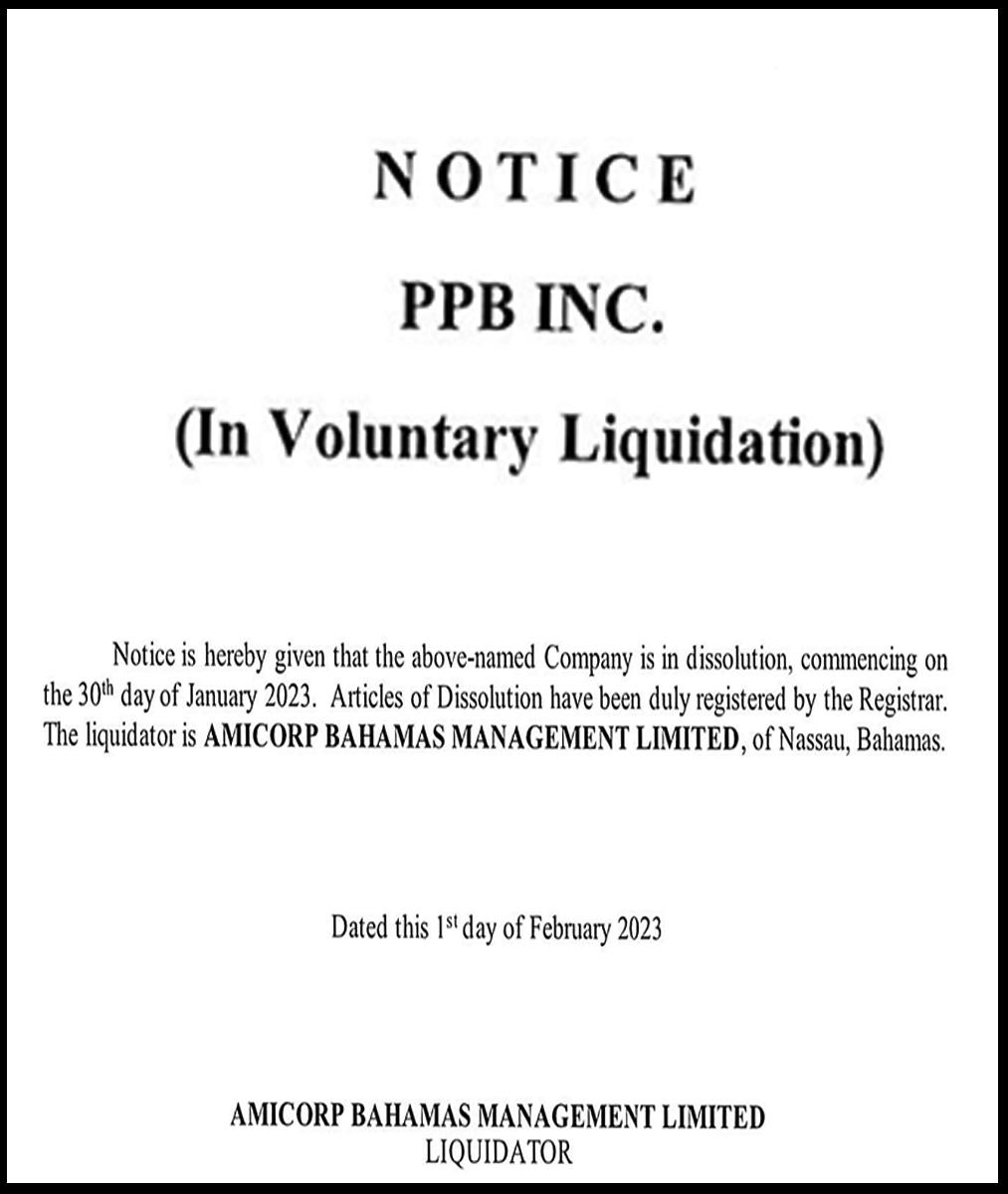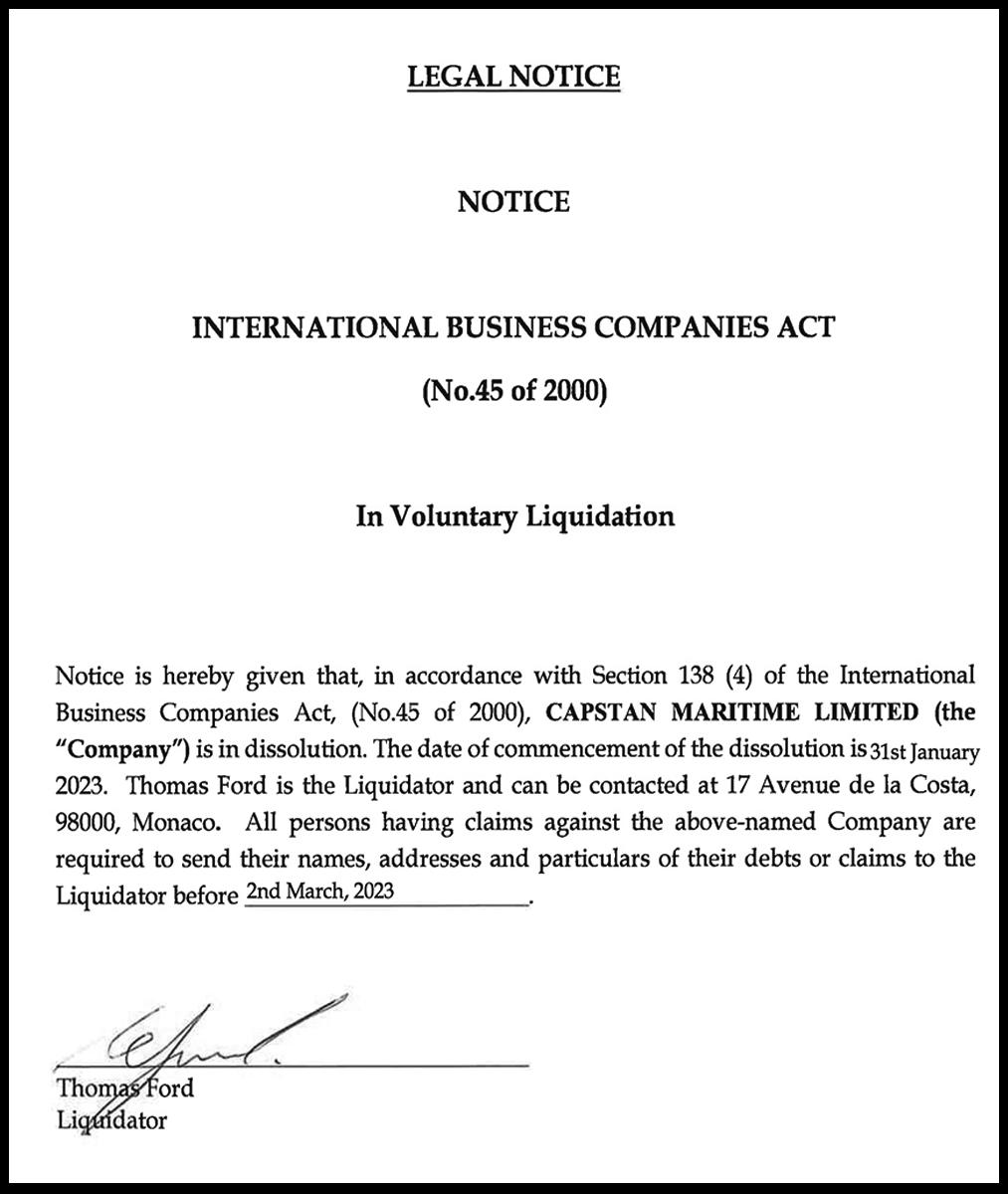
3 minute read
NOTICE
IN THE ESTATE of MURIEL LOUISE
EDWARDS late of the Western District of the Island of New Providence, one of the Islands of The Commonwealth of The Bahamas, deceased.
Advertisement
Notice is hereby given that all persons having any claim or demands against the above named Estate are required to send their names, addresses and particulars of the same duly certified in writing to the undersigned on or before the 13th day of February A.D., 2023, and if required, prove such debts or claims, or in default be excluded from any distribution; after the above date the assets will be distributed having regard only to the proved debts or claims of which the Executor shall then have had Notice.
And Notice is hereby given that all persons indebted to the said Estate are requested to make full settlement on or before the aforementioned date.
MICHAEL A. DEAN & CO., Attorneys for the Executor Alvernia Court, 49A Dowdeswell
P.O. Box N-3114 Nassau, The Bahamas
The difference between $22 and $30 is 36 percent.”
Marcus Bosland, Colina Insurance’s resident actuary, rejected the assertion by Prime Minister Philip Davis KC that the industry has misinterpreted the VAT Act. He said: “For our part, the BIA will continue to speak clearly and directly to the public to ensure that they understand how this change in the VAT rules will affect them.

“In a statement released over the past weekend, the Ministry of Finance accused the BIA of seeking to politicise a technical issue. That framing seeks to minimise the real concerns that the insurance industry has regarding a tax increase that will harm our customers.
“The fact is that we disagree with this rule change. And, given, that it will come into effect in less than two months, it is imperative that we educate the public about the changes and let them know where responsibility for it lies. We will not be daunted by inaccurate suggestions that we are playing politics.”
The BIA at “no time” agreed to the changed VAT treatment on health insurance claims payments and has “steadfastly resisted this rule change”. Mr Bosland added: “The Department of Inland Revenue (DIR) intends to stop insurance companies from being able to recover the VAT paid on health insurance claims. This will mean that, in addition to paying VAT on their premiums, clients will now also be responsible for all of the VAT on the underlying medical services.
“The DIR has rationalised this change by arguing that the medical service received is between the health service provider and the insured. The DIR’s new position takes no account of the fact that the purpose of health insurance is to pay insurance health expenses, and instead treats them as two independent services.
“The BIA has argued that health insurance is a means of financing healthcare, and it is unreasonable and illogical to ignore the linkage between the two. As both health insurance and health services are taxable, health insurance claims should continue to be tax deductible for health insurance. Otherwise the Government would be knowingly applying two levels of VAT on health insurance.”
The Ministry of Finance, though, says the change is necessary because allowing insurers to reclaim VAT on claims payouts breaches the law and is depriving the Public Treasury of millions in vital revenues. It is arguing that it is “clearly against the VAT Act” for insurers to claim back the 10 percent levy on medical claims payouts, with one audit of an unnamed health insurance provider in 2021 showing it had “received over $20m illegally” through this mechanism.

The ministry, and the Department of Inland Revenue’s, position is that VAT is payable on medical insurance claims payouts because these are being made on behalf of the enduser - the consuming patient - and thus should attract the tax. Health insurers are currently claiming this as ‘input’ VAT, offsetting it against their ‘output’ tax on premiums and effectively allowing the likes of Colina, Family Guardian and CG Atlantic to claim it back from the Government.
However, insurers arguing that the Ministry of Finance is wrong to treat the payment of clients’ medical expenses and the care received from providers as two separate services. Its case is that since health insurance and medical services are both VAT-able, health insurance claims should continue to be tax-deductible for health underwriters, otherwise the Government would be knowingly applying two layers of VAT. One insurance source, though, speaking on condition of anonymity, said: “The Department of Inland Revenue has changed its interpretation of what the law is. It hasn’t changed the law. What they’re saying is the insurance companies are not the beneficiaries of the service and, as such, the insurance companies are not to claim back the VAT related to any payout. If the insurers are not the ones receiving the service, then the one doing so has to pay the VAT.”
Street









